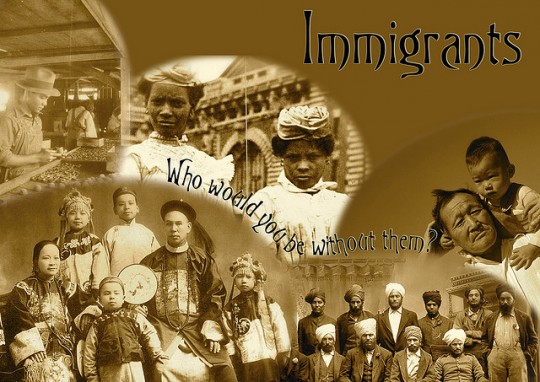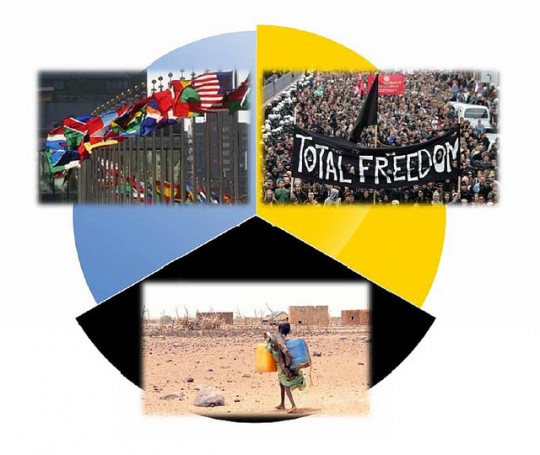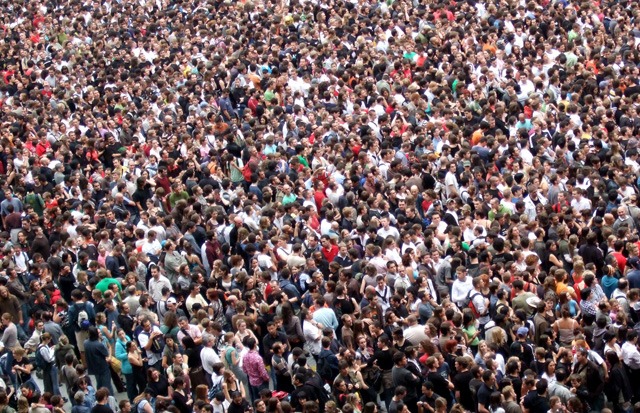
For millions of people the world over, emigration is the first step in our professional lives which begins, and in many cases ends, far from the land of our birth. Some nationalities, more than others, seem to have a natural affinity for living and working “abroad”. Reasons for emigrating can be as many and varied as the people who uproot their lives to live elsewhere: education, work experience, adventure, new horizons, born drifters, or job relocation. However, the two most common reasons still seem to be: the basic need to earn a decent living, and the need to escape from people and places which stifle and threaten one’s possibilities, or in some cases one’s very existence.
We cry, say goodbye, and embark on journeys to become masters of our own destiny
Regardless of whether one believes that we exit the womb with our lives and destinies already pre-determined, or what one thinks about how much control we have over the future, there is little doubt that leaving home for the first time to travel outside of our native land can be a very daunting experience. It subjects us to an avalanche of emotions, ranging from apprehension to excitement. For some, leaving one’s home can feel definitive, never knowing when or if we will see our families, friends or country again. Heart-wrenching and tear-filled farewells play out in towns, villages, and communities across the globe. We could flood the Sahara with the tears shed by emigrants and their families over the years. Now rewind some 50-60 years, and try to imagine a world, prior to cheap phone calls and email, where weeks, months, sometimes years could pass without ever hearing from or seeing loved ones. Letter writing was the prime source of communication back then. Putting pen to paper was a skill which encouraged the writers to be disciplined, humorous and imaginative when using words alone to capture and portray a picture of their life and location to the reader.
Emigration often begins with a decision and a ticket to a destination wherein lies the possibility to convert dreams and hopes into successful and sustainable realities. Years ago, often armed only with limited academic qualifications, core values, and inherent, instinctive and intuitive skills, people would board buses, trains, boats and planes to begin captivating, thought-provoking and enlightening journeys of discovery. Upon reaching new shores, initially at least, immigrants gravitated towards their own people. Thanks to millions of earlier pioneers, some already had access to a support network in the form of relatives, friends or neighbors, who eased the way and helped to navigate all that is strange and unfamiliar.
For many, these journeys began much earlier. Prior to modern TV, Internet, Google and a thousand other sources of information, some had already travelled in their minds and imaginations. This may have been thanks to geography lessons at school, stories shared by our elders, or pictures and words in encyclopedias and other books which many used to enhance their children’s educations and expose them to the amazing and wondrous world of science, nature, history, geography and other cultures. While necessity may have been the main reason many people emigrated, it was often mixed with a healthy thirst for knowledge and new experiences which formed the spring board that launched us on our travels.
Baptism by fire
Emigrating, in and of itself, can be a serious form of education, generally in the form of a cocktail of lessons and experiences which are forever engraved in the hearts, minds and memories of immigrants. Put simply, it is a life-changing and character-building experience whereby immigrants are propelled into a world in which they have to quickly overcome physical and social barriers. The period of adjustment is typically sharp and short-lived. There are usually many miss-steps and mistakes along the way –often essential lessons, which if properly applied and utilized, can translate into opportunities.
Being an immigrant does not and should not define us. Even though immigrants may feel ill-equipped due to a lack of experience or exposure, they must quickly become culturally fluent, adapt to new environments, and learn to deal with complex people and situations. They fast-track the learning of crucial life skills, such as how to live with a tight budget, how to negotiate, to economize, to network, to communicate in an effective and succinct manner, how to be independent, self-reliant, adaptable, innovative, and tough. Instincts, common sense and innate coping mechanisms are key components in handling the highs and lows of surviving and thriving far from native lands.
Fears, reservations and insecurities have to be put aside and replaced by a willingness to embrace and be open to all that is new, different and challenging. The key to success is taking the time to observe, evaluate, and absorb all aspects of our new environments: the people, traditions, customs, and culture, even sometimes a new language. All of the above are skills which, once learned, are valid for life and form the foundation on which to build a solid personal and professional life.
So many “FIRSTS”
There are so many “firsts”, when one move’s to a new country; some which one may not wish to dwell on. However, one of the most significant will be the first friend or friends one makes abroad, the special relationships and connections which give one a sense of belonging. Of the many “firsts”, sharing living and/or work space with strangers, can be one of the most enlightening yet sometimes nightmarish experiences. It teaches us about human behavior and compromise, can result in lifelong friendships, or make us run for the hills. Still, this is usually a catalyst that pushes us to achieve and excel in order to improve our situation.
Looking back while moving forward
Some immigrants immerse themselves in their new worlds, while others tend to keep one foot in each world. Immigration can be a re-birth, a second chance. Yet during this transition, it is normal and healthy to "hark back to the motherland", remembering culture and people as a point of reference, a source of inspiration, solace and strength. Some immigrants struggle more than others to adapt. Despite having physically travelled thousands of miles from home, they find themselves standing still and somewhat paralyzed, as their hearts and minds do not easily connect to their new world.
 Our origins become the yardstick by which we measure and evaluate our adopted countries. We may be forced to re-think all that we know, or think we know. As we grow and evolve, there will be times when we are filled with doubts and uncertainties which we have to overcome. Immigrants generally have a “can do” attitude, and despite various backgrounds or troubled histories, they believe in the principle of learning from the past rather than living in it. Being audacious, resilient and willing to work hard, regardless of how formidable the circumstances, are the paving stones that form the path to growth and advancement. Immigrants are sometimes accused of romanticizing or eulogizing their homeland as if it were some loved one who has passed. In reality, they may simply be verbalizing what is in their hearts.
Our origins become the yardstick by which we measure and evaluate our adopted countries. We may be forced to re-think all that we know, or think we know. As we grow and evolve, there will be times when we are filled with doubts and uncertainties which we have to overcome. Immigrants generally have a “can do” attitude, and despite various backgrounds or troubled histories, they believe in the principle of learning from the past rather than living in it. Being audacious, resilient and willing to work hard, regardless of how formidable the circumstances, are the paving stones that form the path to growth and advancement. Immigrants are sometimes accused of romanticizing or eulogizing their homeland as if it were some loved one who has passed. In reality, they may simply be verbalizing what is in their hearts.
From Expectations to Reality to Acceptance
Depending on where we emigrate from or immigrate to, most experience a “culture shock”. Our expectations and the realities we face may be miles apart, but they usually tend to fall into two categories: “WOW THIS IS AMAZING!” or “WHAT IN THE WORLD...?”.
Our encounters are often a blend of seeing or experiencing things which dampen our spirit, test our resolve and challenge our values and integrity, while on the bright side (hopefully) there is an educational, captivating, even positive life-changing effect, inspiring us to believe that anything is possible. Staying strong, dignified and focused in the face of adversity, ill-will, and different levels of prejudice is never easy, but this is paramount to survival and prosperity.
Immigrants benefit from the business culture of our adopted countries – often a fertile environment which encourages one to become entrepreneurs, to dream wildly, and to max out our imaginations and creativity. However, we may find that our qualifications are not recognized or accepted in our new environments. Sometimes, regardless of rank, education, or experience, in order to flourish and advance, we may just have to start over, often working more than one job or accepting something beneath our abilities or skill set.
Cultures without borders
Entire multi-cultural, vibrant and vital communities and businesses have emerged from immigrant populations. We bring with us our uniqueness and an amazing collection of traditions, including customs, beliefs, culture, art, music, dance, architecture, sport, food and fashion. From of all this, we create a little piece of our motherlands in the midst of our new neighborhoods. Over the years, this incredible, even exotic, fusion of local and different cultures has given birth to billion-dollar and lucrative businesses worldwide including, but not limited to: Irish Pubs, Traditional Music Festivals, African Music and Dance clubs and carnivals, Little Italys and Chinatowns, American Sports bars, Ethiopian Coffee shops, Tapas and Chicha bars, and so much more.
Such places were, and often still are, the immigrants' oasis, where they could relax, reminisce, be sentimental and indulge feelings of homesickness without fear of judgment. They fill a vacuum for immigrants, provide places to meet and greet, discuss and debate, and keep some traditions alive. Primarily, for brief periods, these havens can give the illusion of closeness by transporting people back to their homelands via music, song and dance. They also provide a way to introduce and share cultures with others and a platform from which to break down barriers, build bridges, and in many cases, positively influence the perception people from the host countries have about immigrants. Immigrants had, and still have, a responsibility and a role to play in highlighting the great contribution their skills, abilities, and diversity bring to their adopted countries.
The Transformative Effect and Impact at Home and Away
 Aside of the personal transformation immigrants must go through, they also prove to be very transformative in how things progress in the countries to which they move. Their positive contributions can be seen throughout the world, but especially in major cities. Through sheer hard work, dedication and imagination, immigrants have helped host countries to create iconic and awe-inspiring landmarks, not to mention critical sustainable infrastructure like roads, bridges, highways, railways, tunnels, tram lines, ports, airports, and train stations.
Aside of the personal transformation immigrants must go through, they also prove to be very transformative in how things progress in the countries to which they move. Their positive contributions can be seen throughout the world, but especially in major cities. Through sheer hard work, dedication and imagination, immigrants have helped host countries to create iconic and awe-inspiring landmarks, not to mention critical sustainable infrastructure like roads, bridges, highways, railways, tunnels, tram lines, ports, airports, and train stations.
The speed at which infrastructure was successfully constructed in many host countries, sometimes under harsh, demanding and sometimes deadly conditions, often had a direct and positive effect on markets and economies. This impacted consumer choice, resulting in rapid growth and expansion locally, regionally and internationally. Over time, there was a seamless integration of immigrants on all levels as they filled key roles within all professions, from legal and law enforcement positions, to medical, scientific, and educational posts, to those of community leaders.
Not only did immigrants contribute to and actively participate in the transformation and growth of their adopted countries, but also to that of their homeland. Through material and financial aid, through going back and giving back, immigrants often literally helped raise their people out of poverty and provided much-needed resources and skills. This resulted in improved conditions and possibilities on many levels in their countries of origin, especially in relation to education. People who hunger for the basics in life are often the most discerning and focused regarding the real benefits and possibilities of education. Even now, in this modern, enlightened, technically advanced 21st century, where we tend to take so much for granted, it is impossible not to look back and be humbled by, and respectful of, the sacrifices and accomplishments of immigrants.
Then and Now: the Timeless Cycle of Emigration
60+ years ago, although emigration and being an immigrant was tough, in so many ways it seems it was simpler than it is today. The world was a volatile, ever-changing place, evolving rapidly in every respect and on all levels. This environment provided countless prospects, possibilities and jobs. In some ways, it was still a blank canvas filled with ever-increasing needs which had to be fulfilled. Necessity being the mother of invention gave immigrants carte blanche to use their resources, abilities, imagination, knowledge and know-how to meet the demands of constant growth and development. Back then, immigrants were valuable and respected assets. Access to a better life was available to all who were willing to simply work hard.
Nowadays, especially due to the current global financial crisis, possibilities and opportunities have seemingly shrunk to an all-time low. With this comes varying degrees of resentment and negativity being directed at immigrants. Despite all the successes, progress and advancements, regrettably young (and not so young) people are stuck in a vicious cycle of a lack of jobs or prospects at home, and have once again become their countries’ biggest export. “Brain drain” is the aptly-named modern expression used to describe the reality of many nations losing their best and brightest to other countries which may offer them some chance of finding employment and utilizing their expensive and hard-earned qualifications.
The children of immigrants can also face a number of challenges. They may feel removed from their parents' experiences. Fitting in can sometimes be a real challenge. Their everyday lives are filled with all that is new modern and exciting, while their parents very often want to maintain the traditions and ways of the motherland (some of which may seem harsh, divisive, or contentious). This can result in children being conflicted, and in family friction and clashes as the 2 worlds collide.
The dark side of immigration
 One of the difficulties often faced by immigrants is darker. Sometimes, under the guise of providing jobs and education, people accept offers that may lead to a dark and dangerous reality. Exploitation, of the young, disenfranchised and vulnerable on a global scale and on all levels is the source of daily reports, discussions, debates and multilateral action plans. Yet despite very concentrated and dedicated efforts by individuals, organizations and governments, these situations continue to exist.
One of the difficulties often faced by immigrants is darker. Sometimes, under the guise of providing jobs and education, people accept offers that may lead to a dark and dangerous reality. Exploitation, of the young, disenfranchised and vulnerable on a global scale and on all levels is the source of daily reports, discussions, debates and multilateral action plans. Yet despite very concentrated and dedicated efforts by individuals, organizations and governments, these situations continue to exist.
It is difficult for some of us to believe that people are prepared to risk life and limb to reach a foreign shore in the hope of finding a better life no matter how basic or hard it turns out to be. It is even harder to believe that this type of emigration still represents a major tragedy in our “advanced and civilized” 21st century. Still, forced re-location due to war, conflict, or natural disasters, is indeed a major humanitarian concern, the product of which is numerous refugee camps populated by people running from hell, looking for sanctuary, only to find a desperate reality.
Based on statistics released on World Refugee Day (20 June 2014) 50 million have been forced from their homes worldwide, according to the U.N.
Through all the TEARS, TRAVELS, TRIALS and TRIUMPHS, and there will no doubt be many, “serial” immigrants seriously value, respect and appreciate all that living and working among other cultures can and does teach them. The combination of all their experiences, personal values and principles usually results in a richness of character and a more polished version of themselves.
Photo credits:
J.D. Thomas via photopin cc
zyteck via photopin cc
maltbyjim246 via photopin cc
DukeUnivLibraries via photopin cc



 Our origins become the yardstick by which we measure and evaluate our adopted countries. We may be forced to re-think all that we know, or think we know. As we grow and evolve, there will be times when we are filled with doubts and uncertainties which we have to overcome. Immigrants generally have a “can do” attitude, and despite various backgrounds or troubled histories, they believe in the principle of learning from the past rather than living in it. Being audacious, resilient and willing to work hard, regardless of how formidable the circumstances, are the paving stones that form the path to growth and advancement. Immigrants are sometimes accused of romanticizing or eulogizing their homeland as if it were some loved one who has passed. In reality, they may simply be verbalizing what is in their hearts.
Our origins become the yardstick by which we measure and evaluate our adopted countries. We may be forced to re-think all that we know, or think we know. As we grow and evolve, there will be times when we are filled with doubts and uncertainties which we have to overcome. Immigrants generally have a “can do” attitude, and despite various backgrounds or troubled histories, they believe in the principle of learning from the past rather than living in it. Being audacious, resilient and willing to work hard, regardless of how formidable the circumstances, are the paving stones that form the path to growth and advancement. Immigrants are sometimes accused of romanticizing or eulogizing their homeland as if it were some loved one who has passed. In reality, they may simply be verbalizing what is in their hearts. Aside of the personal transformation immigrants must go through, they also prove to be very transformative in how things progress in the countries to which they move. Their positive contributions can be seen throughout the world, but especially in major cities. Through sheer hard work, dedication and imagination, immigrants have helped host countries to create iconic and awe-inspiring landmarks, not to mention critical sustainable infrastructure like roads, bridges, highways, railways, tunnels, tram lines, ports, airports, and train stations.
Aside of the personal transformation immigrants must go through, they also prove to be very transformative in how things progress in the countries to which they move. Their positive contributions can be seen throughout the world, but especially in major cities. Through sheer hard work, dedication and imagination, immigrants have helped host countries to create iconic and awe-inspiring landmarks, not to mention critical sustainable infrastructure like roads, bridges, highways, railways, tunnels, tram lines, ports, airports, and train stations. One of the difficulties often faced by immigrants is darker. Sometimes, under the guise of providing jobs and education, people accept offers that may lead to a dark and dangerous reality. Exploitation, of the young, disenfranchised and vulnerable on a global scale and on all levels is the source of daily reports, discussions, debates and multilateral action plans. Yet despite very concentrated and dedicated efforts by individuals, organizations and governments, these situations continue to exist.
One of the difficulties often faced by immigrants is darker. Sometimes, under the guise of providing jobs and education, people accept offers that may lead to a dark and dangerous reality. Exploitation, of the young, disenfranchised and vulnerable on a global scale and on all levels is the source of daily reports, discussions, debates and multilateral action plans. Yet despite very concentrated and dedicated efforts by individuals, organizations and governments, these situations continue to exist. 


Great article, well written and so true!
Wonderful article, thought provoking, balanced & amazingly accurate.
I was very impressed by the depth of feeling and by the capacity of the author to capture and convey so poignantly the life expanding aspect of the experience of immigration with its intrinsic aspect of great pain and great courage : a truly spiritual perspective
Thank you, Caroline, for this excellent summary, I feel it comes from your heart! Surely being an immigrant develops a 'can-do' attitude in us, to make the most of what we have. We become more sensitive to equality issues and to other people's situation, by looking beyond the surface. We remember where we have come from and what we have lived and thus we are likely to be compassionate and helpful to others.